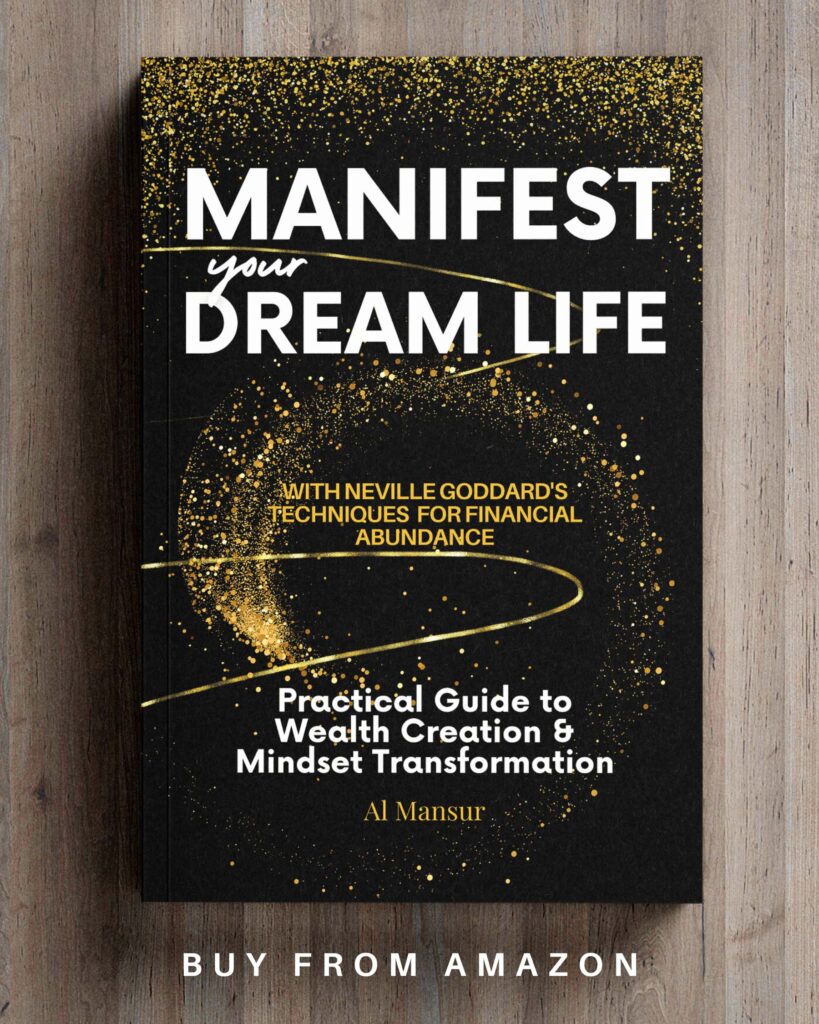Overview
Atomic Habits by James Clear is a bestselling book that provides readers with a practical and actionable framework for changing their habits. Clear argues that small, incremental changes can lead to big results over time. He calls these small changes “atomic habits.”
The book has been praised by critics and readers alike for its clear and concise writing style, its practical advice, and its scientific foundation. Atomic Habits has sold over 5 million copies and has been translated into over 30 languages.

The Atomic Habits Alternatives
While Atomic Habits is a great book, there are other excellent resources available to help you change your habits. Here are three of the best alternatives:
1. Better Than Before: Mastering the Habits of Our Everyday Lives by Gretchen Rubin
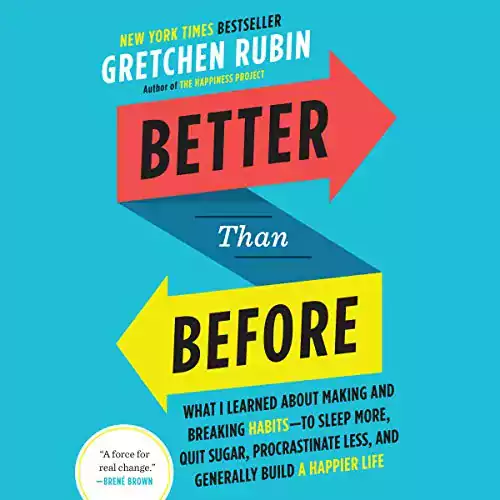
Better Than Before
Mastering the Habits of Our Everyday Lives
By: Gretchen Rubin
Narrated by: Gretchen Rubin
Length: 9 hrs and 33 mins
Disclosure: As an Amazon Associate I earn commission from qualifying purchases or subscriptions through my links in this content.
Better Than Before is a self-help book that helps readers understand their own habits and develop strategies for changing them. Rubin argues that there are four main personality types when it comes to habit formation: Upholders, Questioners, Obligers, and Rebels. Each type has its own strengths and weaknesses in terms of forming and breaking habits.
Key concepts from Better Than Before:
- The Four Tendencies: Upholders, Questioners, Obligers, and Rebels.
- Habit loops: Habits are formed by a three-step loop: cue, routine, and reward.
- The Goldilocks rule: Habits are most likely to stick if they are not too easy or too difficult.
- Habit stacking: Linking new habits to existing habits can make them easier to stick with.
- Accountability: Having someone to answer to can help you stay on track with your goals.
Why Better Than Before is a good alternative to Atomic Habits:
- It takes a more personalized approach to habit change. Rubin’s Four Tendencies framework helps readers identify their own strengths and weaknesses when it comes to habit formation. This allows them to develop strategies that are tailored to their individual needs.
- It is more focused on the psychological aspects of habit change. Atomic Habits focuses on the science of habit formation, while Better Than Before focuses on the psychology of habit change. This can be helpful for readers who are struggling to understand why they have certain habits or who have difficulty sticking with new habits.
- It is more comprehensive. Better Than Before covers a wider range of topics related to habit change, including motivation, accountability, and dealing with setbacks. This can be helpful for readers who are looking for a more holistic approach to habit change.
Overall, Better Than Before is a well-written and informative book that provides readers with a variety of tools and strategies for changing their habits. It is a good alternative to Atomic Habits for readers who are looking for a more personalized, psychological, and comprehensive approach to habit change.
2. Tiny Habits: The Small Changes That Change Everything by BJ Fogg
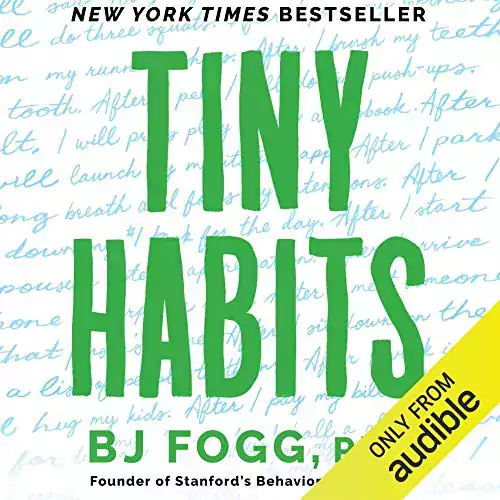
Tiny Habits
The Small Changes That Change Everything
By: BJ Fogg PhD
Narrated by: BJ Fogg PhD
Length: 11 hrs and 22 mins
Tiny Habits focuses on the concept of “tiny habits,” which are small, incremental changes that are easy to stick with. Fogg provides a framework for creating and sticking to tiny habits, and he also includes a number of case studies from people who have used tiny habits to achieve their goals.
Tiny Habits teaches readers how to change their habits by starting with small, incremental changes. Fogg argues that tiny habits are more likely to stick than larger changes, and that they can eventually lead to big results.
Fogg’s book is based on the Fogg Behavior Model, which identifies three key factors that are essential for habit formation: motivation, ability, and trigger. Motivation is the desire to change, ability is the ease of performing the behavior, and trigger is the cue that prompts the behavior.
Fogg argues that tiny habits are more likely to stick because they are easy to do and require less motivation. He also recommends using implementation intentions, which are specific plans for how and when you will perform a habit.
Here are some of the key concepts from Tiny Habits:
- Tiny habits: Tiny habits are small, incremental changes that are easy to stick with. For example, instead of trying to lose 10 pounds in a month, you could start by doing one push-up each day.
- Motivation: Motivation is the desire to change. Fogg argues that tiny habits are more likely to stick because they require less motivation.
- Ability: Ability is the ease of performing the behavior. Fogg recommends making habits as easy as possible, even if it means starting very small.
- Trigger: A trigger is the cue that prompts the behavior. Fogg recommends linking tiny habits to existing habits or routines.
- Implementation intentions: Implementation intentions are specific plans for how and when you will perform a habit. For example, “I will do one push-up as soon as I get out of bed each morning.”
Why Tiny Habits is a good alternative to Atomic Habits:
- It focuses on small, incremental changes. Atomic Habits also emphasizes the importance of small changes, but Tiny Habits takes this approach even further by focusing on tiny habits, which are even easier to stick with.
- It is based on the Fogg Behavior Model. The Fogg Behavior Model is a comprehensive model of habit formation that is based on scientific research. This gives Tiny Habits a strong foundation in evidence-based practices.
- It provides practical tools and strategies. Tiny Habits includes a number of practical tools and strategies for changing your habits, such as implementation intentions and habit stacking.
Tiny Habits is a well-written and informative book that provides readers with a practical and effective approach to habit change. It is a good alternative to Atomic Habits for readers who are looking for a more focused and evidence-based approach to habit change.
3. The Power of Habit: Why We Do What We Do in Life and Business by Charles Duhigg
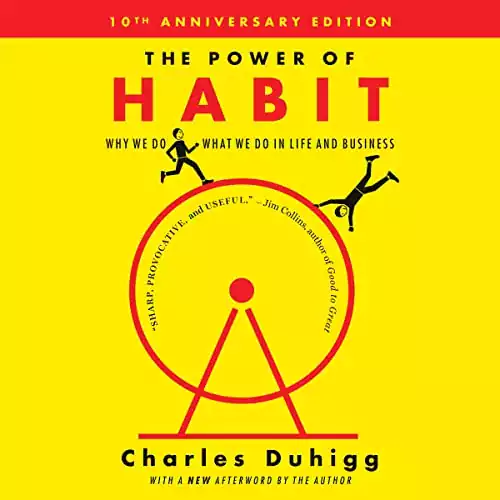
The Power of Habit
Why We Do What We Do in Life and Business
By: Charles Duhigg
Narrated by: Mike Chamberlain
Length: 11 hrs and 10 mins
The Power of Habit is a more in-depth exploration of the science of habit formation. Duhigg explains how habits work at the neurological level, and he provides examples of how habits are used by individuals and organizations to achieve success.
The Power of Habit explores the science of habit formation and how to change our habits. Duhigg argues that habits are made up of three parts: a cue, a routine, and a reward. The cue is what tells our brain to go into automatic mode and start the routine. The routine is the behavior itself. And the reward is what tells our brain that the routine is worth remembering for the future.
Duhigg also argues that there are two types of habits: keystone habits and keystone behaviors. Keystone habits are habits that have a ripple effect on other areas of our lives. For example, if we start exercising regularly, we’re more likely to eat healthier and sleep better. Keystone behaviors are habits that are important for our success in a particular area of life. For example, if we want to be successful in business, we need to have the habit of being reliable and meeting deadlines.
The Power of Habit provides a number of practical tips for changing our habits. One of the most important tips is to identify the cue and reward for each habit that we want to change. Once we know the cue and reward, we can start to experiment with different routines. For example, if we’re trying to quit smoking, we might try to avoid the places and people that trigger our urge to smoke. Or we might try to find a new reward for ourselves, such as going for a walk or listening to music.
Another important tip is to make small changes. It’s much easier to stick with a small change, such as doing one push-up each day, than it is to stick with a big change, such as trying to lose 10 pounds in a month. Once we’ve mastered the small change, we can gradually increase the difficulty.
Why The Power of Habit is a good alternative to Atomic Habits:
- It is more in-depth. The Power of Habit provides a more in-depth exploration of the science of habit formation and how to change our habits. It also covers a wider range of topics, such as keystone habits and keystone behaviors.
- It is more focused on the psychological aspects of habit change. Atomic Habits focuses on the science of habit formation, while The Power of Habit focuses on the psychological aspects of habit change. This can be helpful for readers who are struggling to understand why they have certain habits or who have difficulty sticking with new habits.
- It is more engagingly written. The Power of Habit is written in a more engaging and storytelling style. This makes it a more enjoyable read than Atomic Habits, which can be more dry and technical.
The Power of Habit is an excellent book for anyone who is interested in learning more about the science of habit formation and how to change their habits. It is a good alternative to Atomic Habits for readers who are looking for a more in-depth, psychological, and engagingly written book on habit change.
Why Listen to Audiobooks?
Reading books has many benefits, but it can also be time-consuming. If you’re looking for a way to get the same benefits without spending as much time, try listening to audiobooks.
Audiobooks are convenient. You can listen to them anytime, anywhere, on your phone, tablet, computer, or even in your car. They are also engaging, with many audiobooks narrated by professional voice actors and including sound effects and music to bring the story to life. Additionally, audiobooks are informative, with a wide variety of topics to choose from, including business, history, science, and personal development.
Audiobooks are a great way to learn and get information. Listening to audiobooks can also be more effective than reading for learning and comprehension. Studies have shown that people who listen to audiobooks retain more information than people who read the same text.
If you’re not sure if audiobooks are right for you, you can try Atomic Habits or one of the three other alternatives discussed in this post for free as a start before committing to a subscription. Atomic Habits is a popular audiobook because it is well-written and narrated by Clear himself. The audiobook also includes a number of bonus features, such as interviews with experts on habit change.
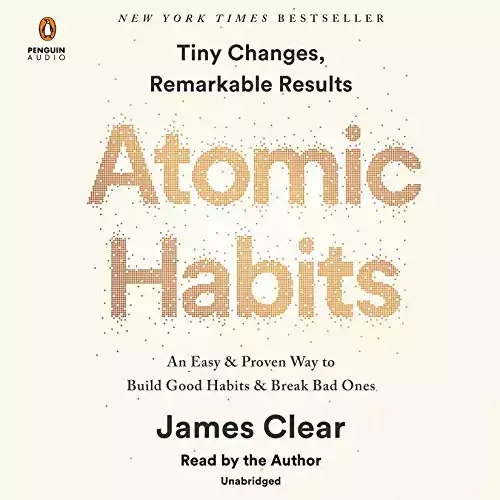
Atomic Habits
An Easy & Proven Way to Build Good Habits & Break Bad Ones
By: James Clear
Narrated by: James Clear
Length: 5 hrs and 35 mins
Overall, Atomic Habits is an excellent book for anyone who wants to learn how to change their habits for the better. It is well-written, practical, and actionable. Listening to the audiobook is a great way to learn the material and apply it to your own life.
How to listen audiobook effectively?
- Listen to the audiobook in small chunks. This will help you to stay focused and avoid feeling overwhelmed.
- Take breaks while you listen. Get up and move around, or do something else that you enjoy. This will help to prevent you from getting bored or restless.
- Rewind and replay sections that you don’t understand. This is perfectly normal, and it’s important to make sure that you understand the material before moving on.
- Apply the tips and strategies from the book to your own life. This is the best way to make the most of the audiobook and achieve your goals.
- Take notes while you listen. This will help you to remember the key concepts and strategies from the book.
- Listen to the audiobook multiple times. This will help you to internalize the information and apply it to your own life.
- Discuss the audiobook with a friend or family member. This is a great way to stay motivated and accountable.
10 Best Headphones and Earbuds for Listening Audiobooks (2024)
 Bose QuietComfort 45 Wireless Bluetooth Noise Cancelling Headphones
Bose QuietComfort 45 Wireless Bluetooth Noise Cancelling Headphones JBL Tune 510BT: Wireless On-Ear Headphones with Purebass Sound
JBL Tune 510BT: Wireless On-Ear Headphones with Purebass Sound Sennheiser Consumer Audio HD 450SE Black Bluetooth 5.0 with Alexa Built-in – Active Noise Cancellation
Sennheiser Consumer Audio HD 450SE Black Bluetooth 5.0 with Alexa Built-in – Active Noise Cancellation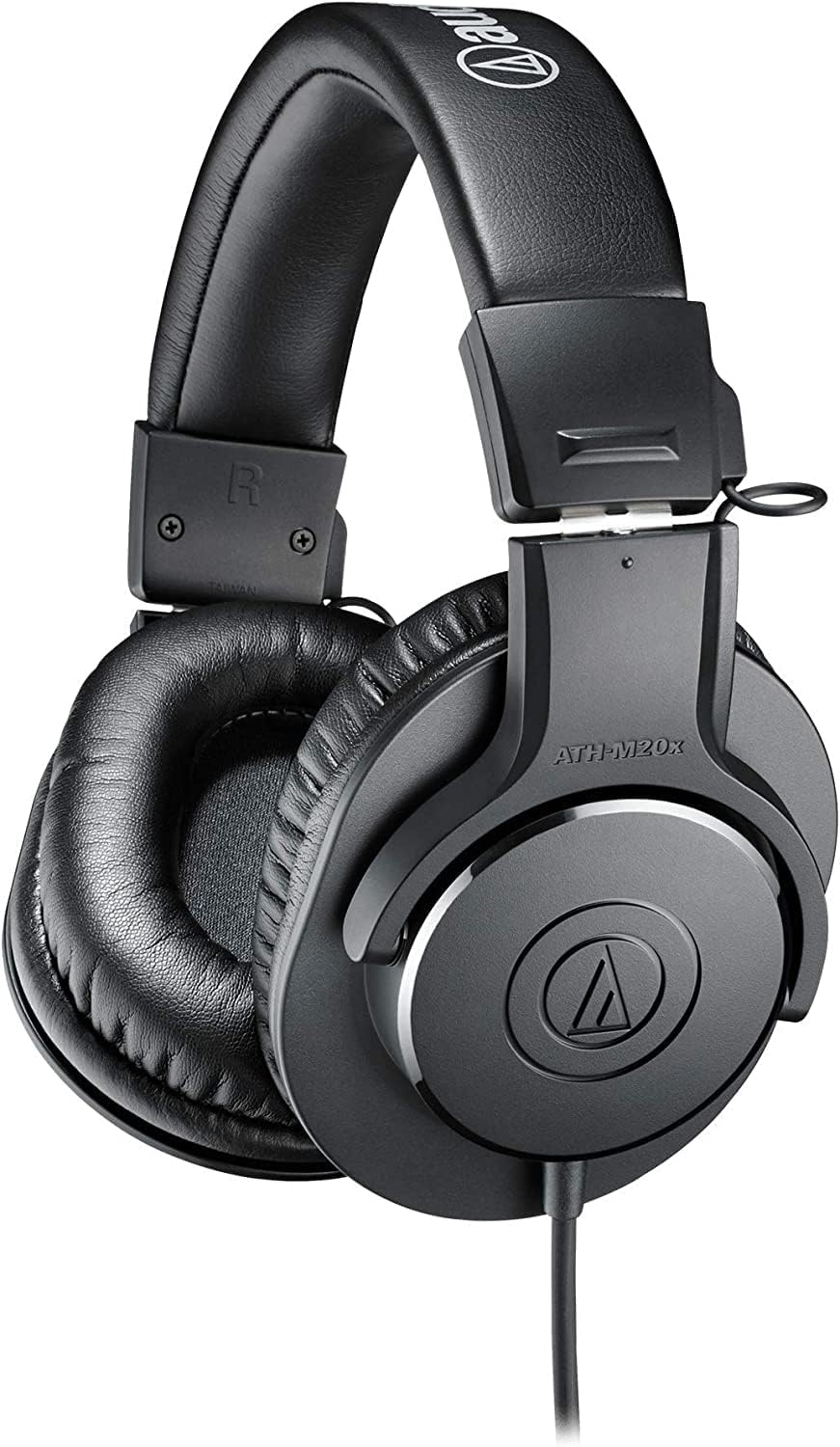 Audio-Technica ATH-M20X Professional Studio Monitor Headphones
Audio-Technica ATH-M20X Professional Studio Monitor Headphones Soundcore by Anker Space Q45 Adaptive Active Noise Cancelling Headphones
Soundcore by Anker Space Q45 Adaptive Active Noise Cancelling Headphones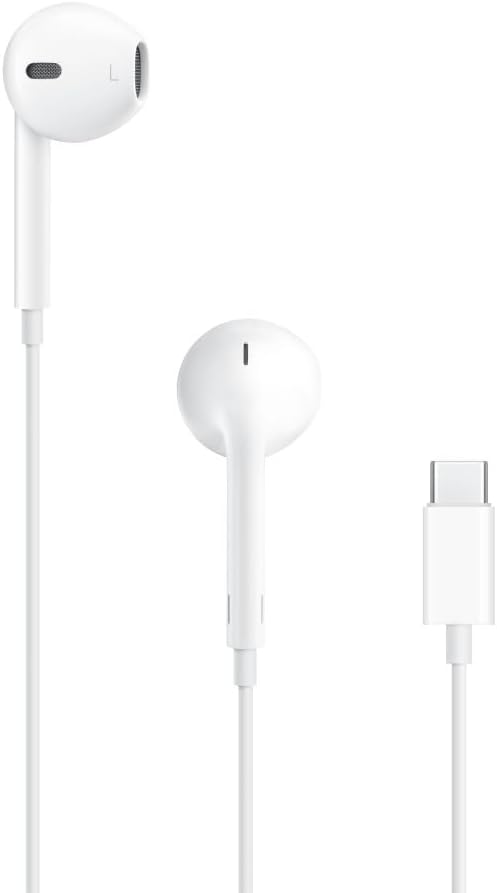 Apple EarPods Headphones with USB-C Plug
Apple EarPods Headphones with USB-C Plug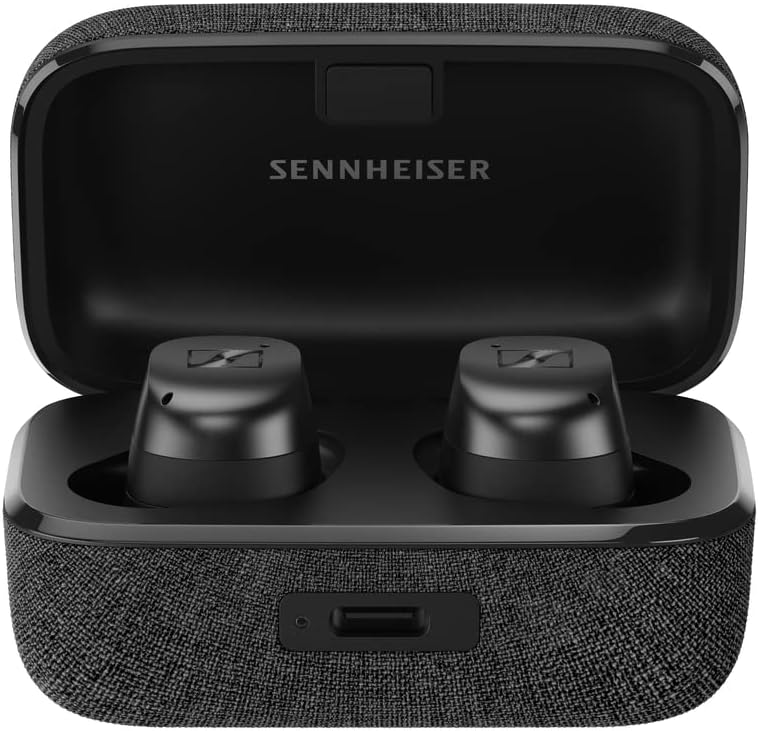 Sennheiser Consumer Audio MOMENTUM True Wireless 3 Earbuds
Sennheiser Consumer Audio MOMENTUM True Wireless 3 Earbuds JBL VIBE 100 TWS – True Wireless In-Ear Headphones
JBL VIBE 100 TWS – True Wireless In-Ear Headphones Soundcore by Anker Liberty 3 Pro Noise Cancelling Earbuds
Soundcore by Anker Liberty 3 Pro Noise Cancelling Earbuds JBL Tune Flex – True Wireless Noise Cancelling Earbuds
JBL Tune Flex – True Wireless Noise Cancelling EarbudsDisclosure: As an Amazon Associate I earn commission from qualifying purchases or subscriptions through my links in this content.
Final Thought
Changing your habits can be a challenge, but it is possible with the right tools and strategies. The books discussed above can provide you with the knowledge and guidance you need to make lasting changes. All four books are also available as audiobook, they all excellent resources, and they can help you achieve your goals.
Each of these audiobooks offers a unique perspective on habit change, but they all share the common thread that small changes can lead to big results over time. They also all emphasize the importance of understanding your own motivations and triggers, and developing strategies that work for you.
No matter what your goals are, the audiobooks discussed above can help you achieve them by helping you change your habits.
Try audiobooks for free and get 1 FREE audiobook to listen to. Completely free for 30 days. You may be surprised at how much you enjoy them!








